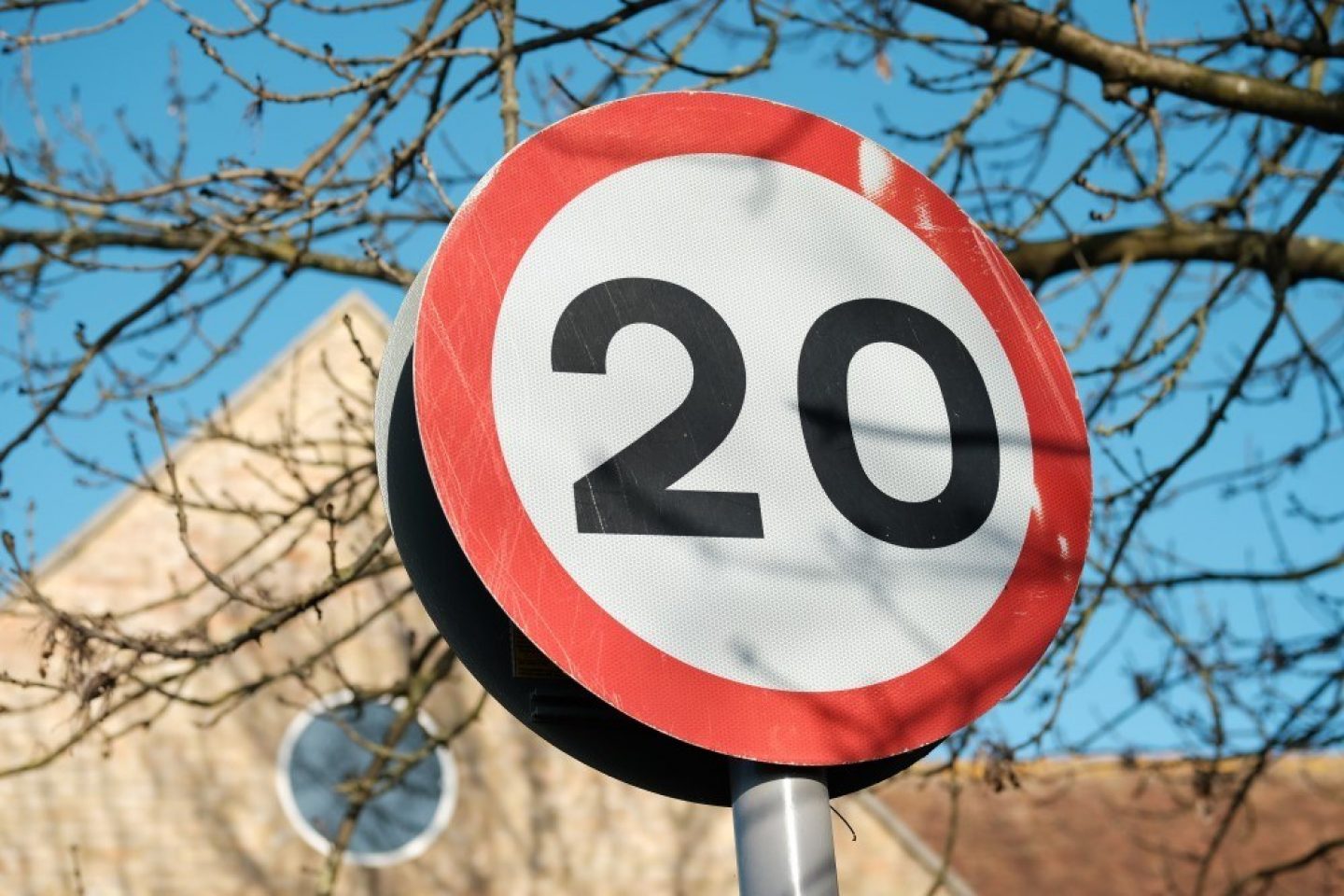- Average speeds on main roads have dropped by 4mph in first three months since default 20mph speed limits were implemented.
- New data from areas where 20mph first introduced supports the downward trend in traffic speed.
- Wales' Deputy Minister for Climate Change heralds the reduction in traffic speeds as 'a real turning point'.
- Brake's Chief Executive Ross Moorlock welcomes the findings and calls on governments and local authorities across the UK to follow Wales' lead and lower the default speed limit on roads in built up areas to 20mph.
New preliminary 20mph data published today by the Welsh Government shows that speeds have reduced by an average of 4mph on main roads since the national rollout of the default 20mph speed limit in Wales.
The data, which was
collected by Transport for Wales, monitored the speed of millions of vehicles in
nine different communities across Wales before and after the implementation of default 20mph speed limits.
Data gathered shows the average speeds on main roads dropped an average of 4mph – from 28.9mph to 24.8mph. Weighted mean speeds were recorded on a sample of main restricted roads in Wales over a three month period following the change in speed limit from 30mph to 20mph.
Research shows a strong link between lowering speeds and decreasing the number of collisions and people injured. On urban roads with low average speeds, there is, on average, a 6% reduction in collisions for every 1mph reduction in average speed.
This downward trend in speeds is also supported by new data from areas where 20mph speed limits were first implemented, which has also been published today.
Lee Waters MS, Deputy Minister for Climate Change, with responsibility for transport, said:
“The latest data published today is clear evidence that average speeds are coming down on roads across Wales.
“We also know from data published by Go Safe earlier this month that 97% of drivers are complying with the new slower speed limit – behaviours and attitudes towards 20mph are beginning to change.
“We’ve still got a way to go, but it’s encouraging to see that things are moving in the right direction. Every 1mph reduction in speed makes a real difference – so this is a real turning point.
“The
international evidence is clear, lower speeds saves lives – that’s fewer
collisions, fewer deaths and fewer severe injuries, reducing the devastation to
individuals and their families and the significant impact on the NHS and other
emergency services.”
We hope that governments and local authorities across the UK will take Wales’ lead and adopt 20mph as the default speed on roads where people and vehicles mix.
Ross Moorlock, Chief Executive, Brake
Commenting on the latest statistics, Brake's Chief Executive Ross Moorlock added:
"It’s encouraging to see how the new 20mph speed limit has reduced the overall speeds of these roads.
“Every day, five people die on UK roads and speed is a factor in every crash. The faster we drive, the greater our risk of crashing, and the harder we hit if we do crash.
“We know that road crashes have a devastating impact on families and communities. Sadly, we see this first-hand every day through the work of our National Road Victim Service, which last year supported more than 1,500 families who have been bereaved by a road crash or suffered catastrophic, life-changing injuries.
“We hope that governments and local authorities across the UK will take Wales’ lead and adopt 20mph as the default speed on roads where people and vehicles mix."
Alongside publication of the national data, an independent report on the setting of exceptions to the default 20mph limit has also been published. The report sets out a series of early findings and initial recommendations.
Speaking about the work of the independent review team that wrote the report, Welsh Local Government Association Chief Executive, Andrew Morgan said:
“Council leaders welcome the review of the implementation and the current guidance to help them make the right choices for their communities. Councils want to engage with the review to ensure we have the right speeds on the right streets.
“Whilst there appears to be some roads where the speed limit isn’t right and there is a need for local authority review, we have heard from some councils that positive differences have been seen in the speed and safety of their streets, particularly amongst vulnerable people.”
- Written Statement
ENG: Written Statement: 20mph Early Speed Data (20 February 2024) | GOV.WALES
WEL: Written Statement: 20mph Early Speed Data (20 February 2024) | GOV.WALES - Preliminary weighted mean speed (mph) data on main through roads following the national 20mph default speed limit on restricted roads
ENG: Default 20mph Speed Limit on Restricted Roads | Transport for Wales (tfw.wales)
WEL: Terfyn Cyflymder 20mya Diofyn ar Ffyrdd Cyfyngedig | Trafnidiaeth Cymru (trc.cymru) - Phase 1 Final Monitoring Report
ENG: https://tfw.wales/about-us/transparency/publications/default-20mph-speed-limit/phase-1-areas
WEL: https://trc.cymru/amdanom-ni/tryloywder/cyhoeddiadau/terfyn-cyflymder-20mya-diofyn/ardaloedd-cam-1 - Data table - Default 20mph speed limit on restricted roads, Phase 1 monitoring data
ENG: https://tfw.wales/about-us/transparency/publications/default-20mph-speed-limit/phase-1/monitoring-data
WEL: Terfyn Cyflymder 20mya Diofyn ar Ffyrdd Cyfyngedig | Trafnidiaeth Cymru (trc.cymru) - Data table - Average journey times in Phase 1 monitoring locations
ENG: https://tfw.wales/about-us/transparency/publications/default-20mph-speed-limit/phase-1/average-journey-times
WEL: Terfyn Cyflymder 20mya Diofyn ar Ffyrdd Cyfyngedig | Trafnidiaeth Cymru (trc.cymru) - Initial Report 20mph default speed limit review exceptions
ENG: https://www.gov.wales/20mph-default-speed-limit-review-exceptions
WEL: https://www.llyw.cymru/adolygiad-o-eithriadau-terfyn-cyflymder-diofyn-o-20mya
Research undertaken by the Transport Research Laboratory in 2000 shows that for urban roads with low average speeds, there is an average 6% reduction in collisions with each 1mph reduction in average speed. This report is still widely cited (recently) by LA in England, UK Parliament, Scottish Government and ROSPA and road safety charity, Break.
The new preliminary 20mph data was collected over two weeks in November and early December.
